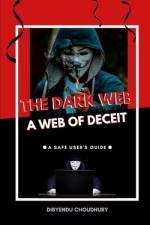- A Web of Deceit: A Safe User's Guide
av Dibyendu Choudhury
279
The book is about the hidden dangers and threats that exist in the online world. It covers topics such as cybersecurity and online scams, psychological manipulation and mind control, as well as espionage and intelligence agencies. It aims to educate and inform readers about the complex and sinister web of deceit that exists in the digital realm and how to protect themselves from it. The dark web is a breeding ground for cybercriminals, who exploit vulnerable populations like seniors, children, and low-income individuals. In 2020, nearly 330 million people worldwide were victims of cybercrime, losing over $1 trillion. Cybercriminals target vulnerable groups like seniors through phishing, vishing, spoofing, and tech support scams, exploiting their trust and goodwill. Stay vigilant and educate yourself about online scams and frauds to protect yourself from falling victim to these deceitful practices. Cybercrime can be devastating for seniors, causing loss of life savings, identity, privacy, and even their lives. To protect themselves and their loved ones, seniors should be sceptical, secure, and informed about the latest scams and trends in cybercrime. Cybercriminals use artificial intelligence and other tools to create fake voices, videos, images, and messages that can fool or manipulate people into believing or doing something they shouldn't. Cyberbullying, sextortion, and online grooming are examples of cybercriminals targeting younger people, posing serious threats to their mental health and well-being. By being proactive and seeking guidance from trusted individuals, younger individuals can confidently embrace the opportunities the internet provides while staying protected from potential threats. Parents, guardians, and educators must actively educate young individuals about internet safety to empower them to make informed decisions and protect themselves. They can set parental controls, incorporate internet safety lessons, and help develop critical thinking skills. Teachers can also simulate real-life scenarios for informed decision-making.




